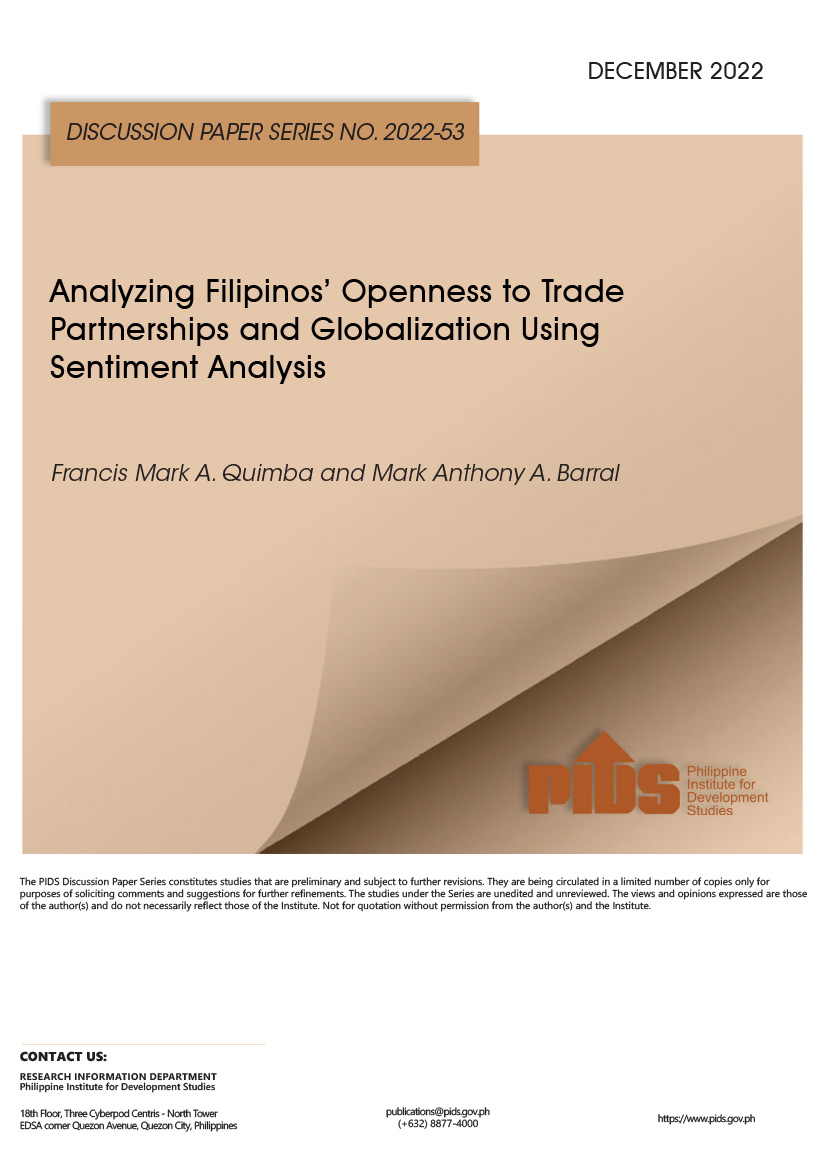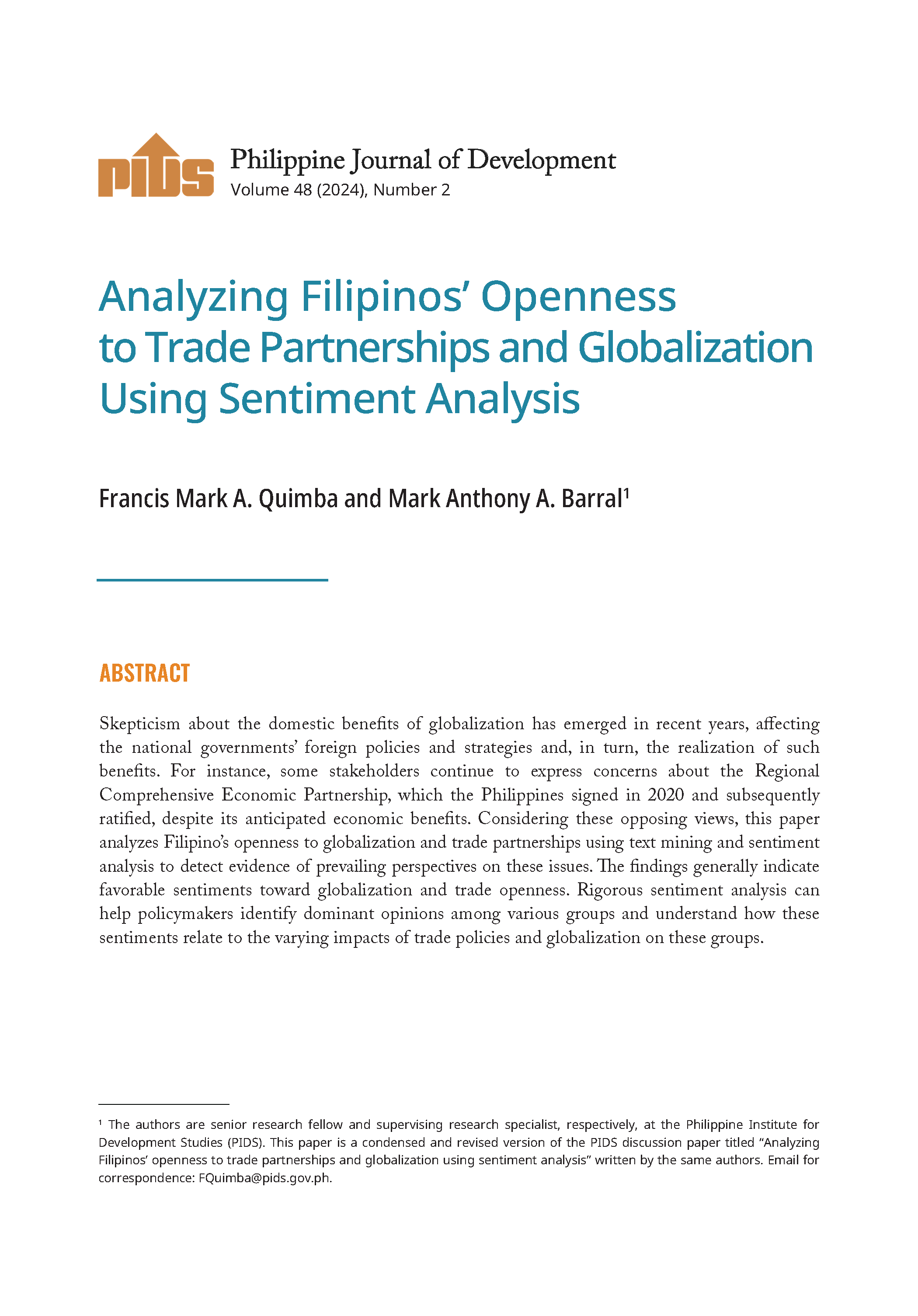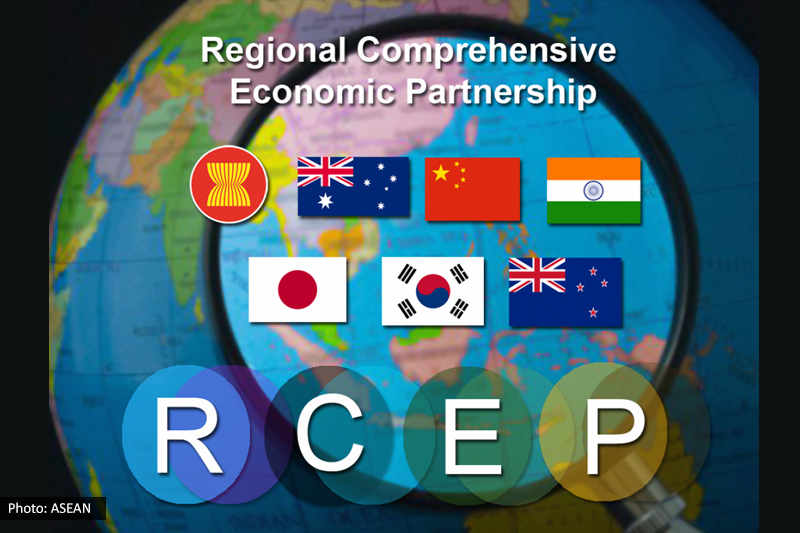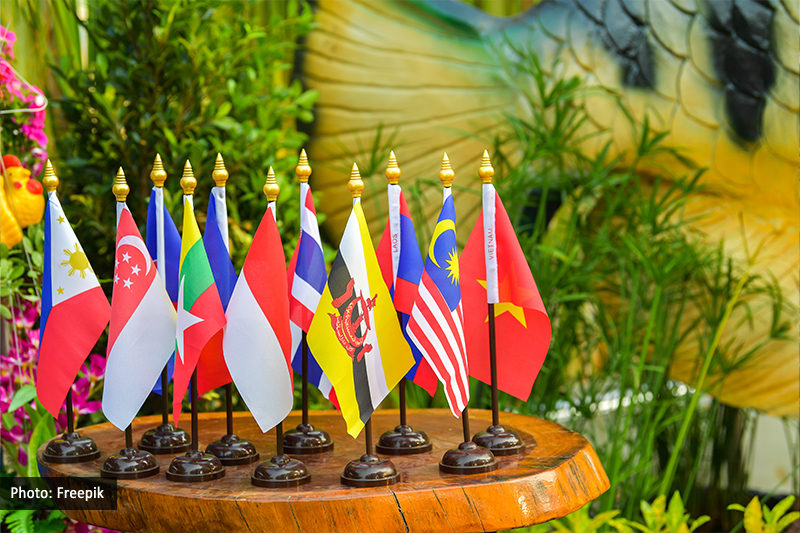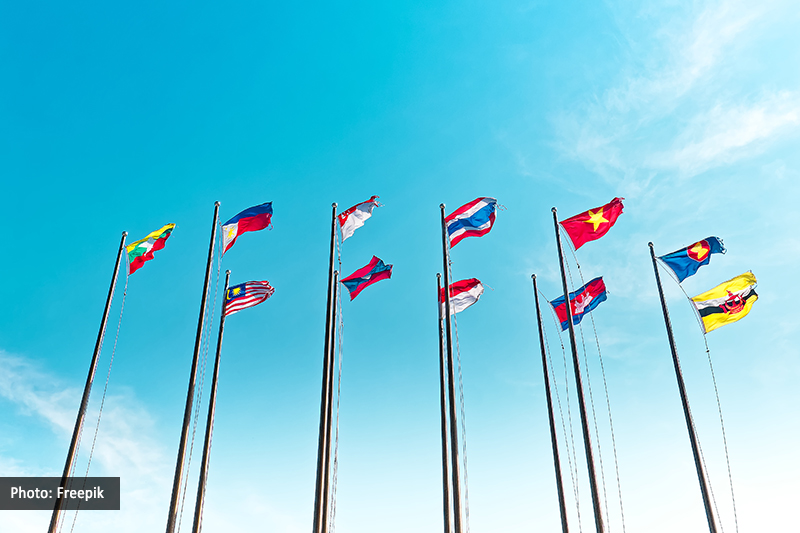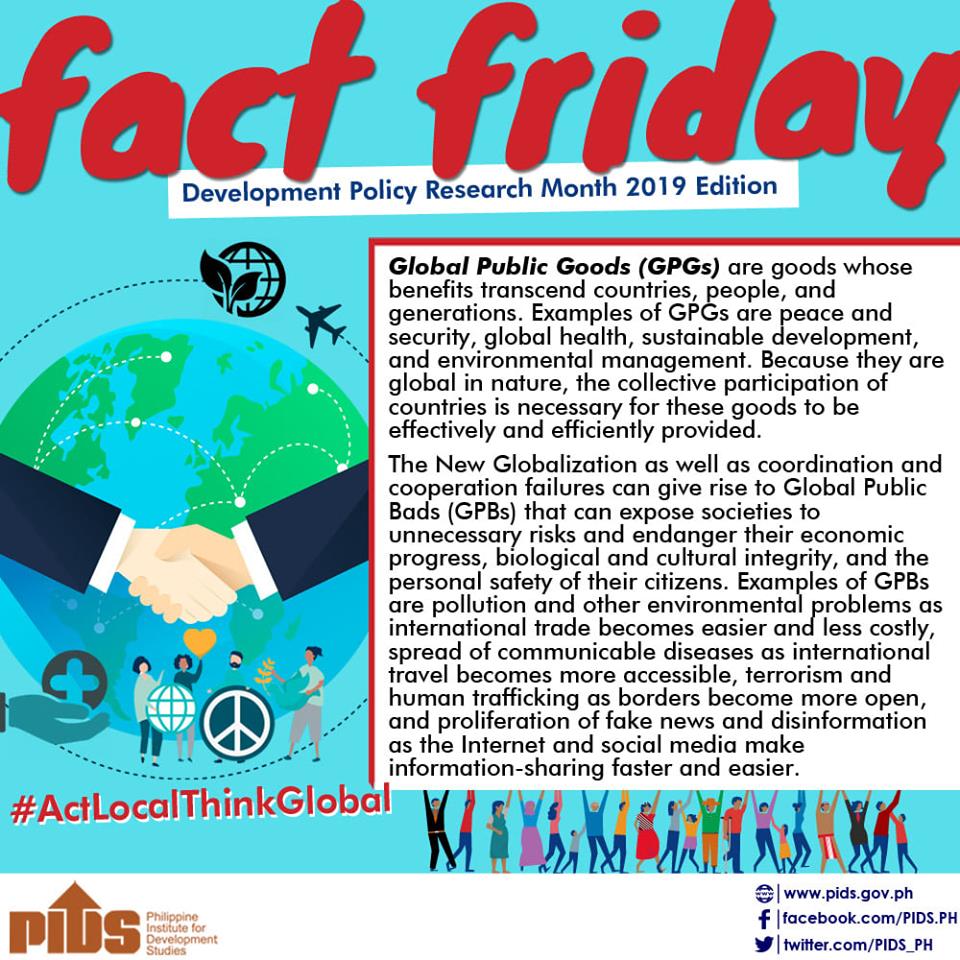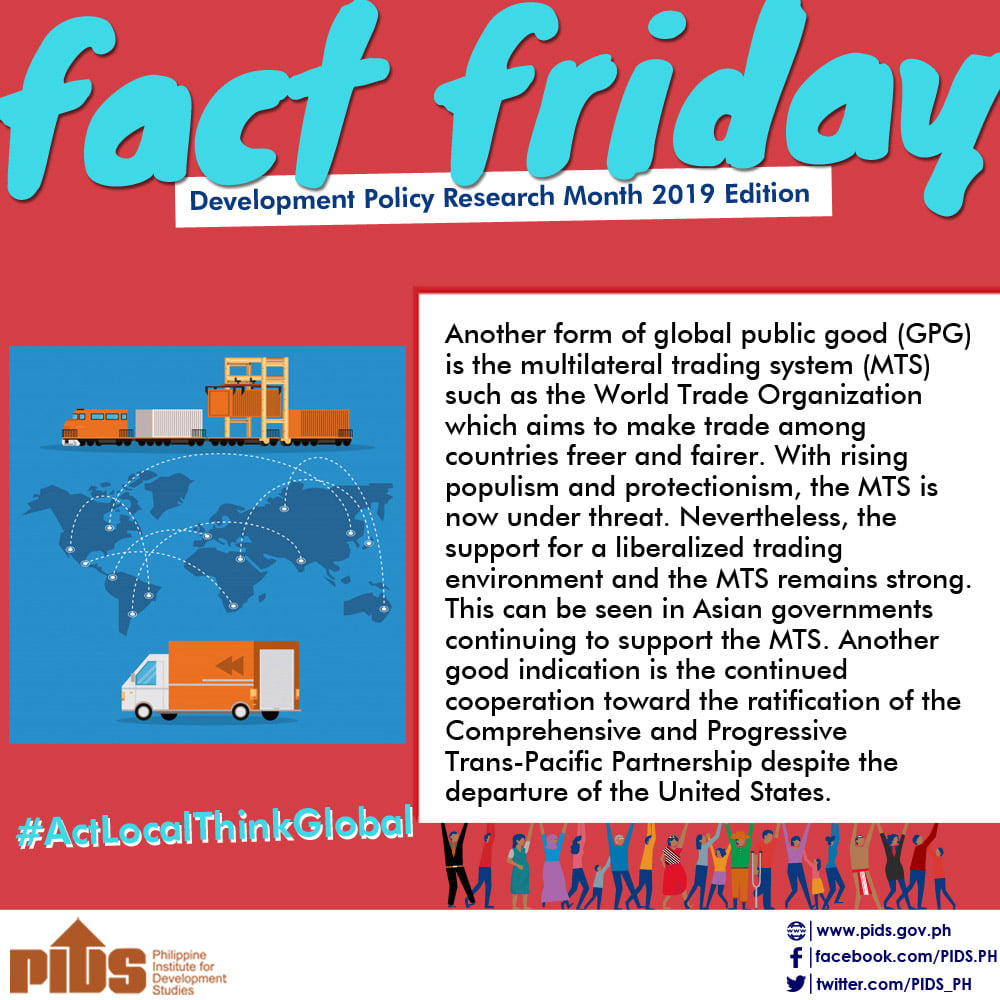Empirical evidence points to globalization being favorable for a nation’s growth and development. For the Philippines, trade openness and foreign portfolio helped increase per capita GDP as investment and productivity improved. With trade openness and globalization, nations share and gain access to knowledge and technology, inputs of lower costs, new markets, and talents, which improve domestic economic processes. Over the years, however, skepticism about globalization emerged, which affects governments’ foreign strategies and policies and, in turn, the realization of intended benefits. With respect to RCEP, which the country signed in 2020, the Philippines is yet to ratify the deal after clamors to delay or reject the deal. Considering the opposing views, this paper aims to analyze Filipino’s openness to globalization and trade partnerships using text mining and sentiment analysis to detect evidence suggesting prevailing perspectives towards these issues. In general, the paper finds favorable sentiments toward globalization and trade openness. This study demonstrates the potential of understanding moods and sentiments toward policy to provide distinctive explanatory power that can be used in harmonizing differences in opinions across several domestic and international issues.
Comments to this paper are welcome within 60 days from the date of posting. Email publications@pids.gov.ph.

